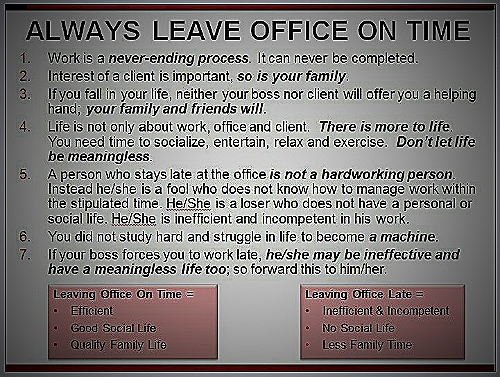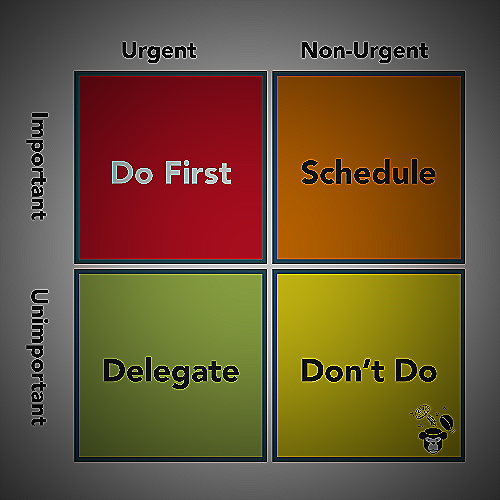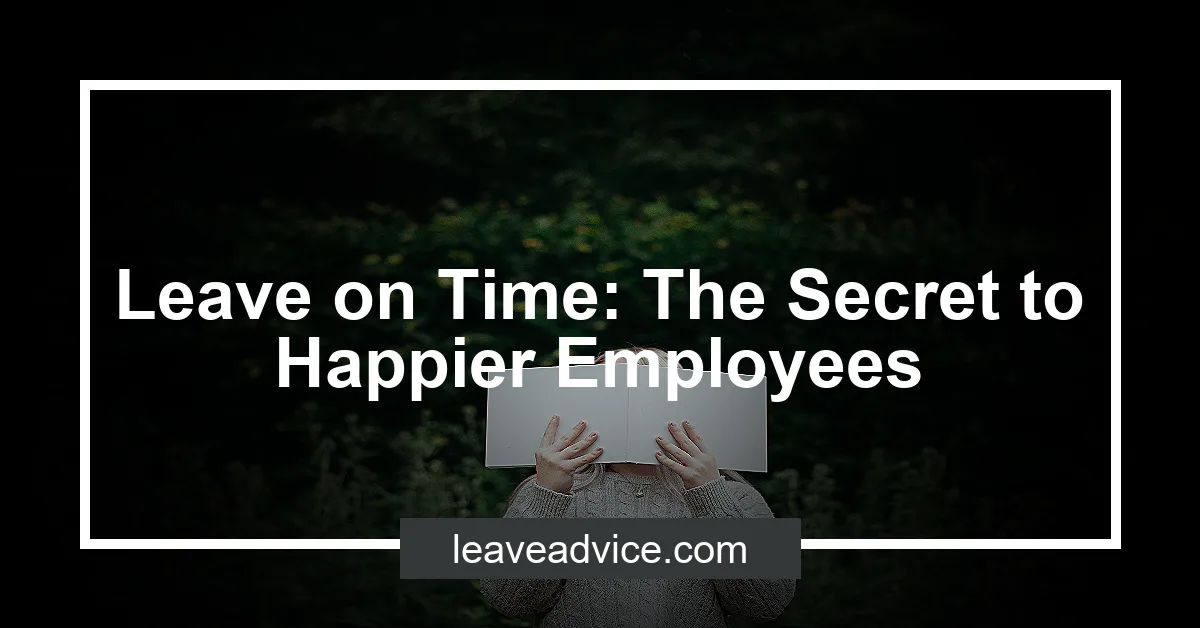Leave on Time: The Secret to Happier Employees
Leaving work on time is imperative for employee happiness, productivity, and a balanced work-life. According to a study conducted by Harvard Business Review, employees who have more control over their work schedules are happier and experience lower levels of stress.
Additionally, a study by the University of California, San Francisco found that working long hours increases the risk of coronary heart disease by up to 67%. Therefore, creating a work environment that encourages employees to “leave on time” can enhance overall employee well-being and workplace productivity.
The Benefits of Leaving on Time
Leaving work on time can be a great benefit for both employees and employers. One of the main advantages is that it enhances work-life balance, allowing employees to maintain good relationships with their family and friends, and have better personal well-being.
It can also help reduce stress levels in employees by giving them sufficient time to rest and recharge. By achieving a work-life balance, employees can avoid burnout, and as a result, minimize absenteeism and sick leaves, which can lead to higher productivity levels.
From the employer’s perspective, encouraging employees to leave on time can improve staff retention rates and attract new employees. Employers can promote their company culture by valuing and respecting the work-life balance of their staff.
When employees feel valued, they are likely to be more productive and create a positive working environment.

The Challenges of Leaving on Time
For many employees, leaving work on time can be a difficult task. Heavy workloads, tight deadlines, and demanding expectations from managers and employers can make it challenging to manage work-life balance.
As a result, employees may feel the pressure to work longer hours, sacrificing their personal time and causing unnecessary stress.
Managers and employers should be more understanding of the importance of work-life balance for their employees. Encouraging a healthy work-life balance can lead to increased productivity and job satisfaction, ultimately benefiting both the employee and employer.
By promoting a culture that values leaving work on time, workplaces can achieve a better balance that benefits everyone.
It’s important to note that inappropriate behavior from managers and colleagues can also contribute to unnecessary work hours. For example, constantly sending emails after office hours, requiring immediate responses, or piling on last-minute assignments can make it almost impossible for employees to leave on time.
Managers and colleagues should be respectful of their coworkers’ time and understand that everyone deserves a healthy work-life balance.
Overall, leaving work on time can lead to improved mental and physical health, increased productivity, and a better work-life balance. By recognizing the importance of work-life balance and promoting a culture that values leaving work on time, both employees and employers can experience the benefits of a healthy work-life balance.
Strategies for Leaving on Time
Leaving work on time should be a priority for employees to lead a balanced life. However, it can be challenging to disconnect and prioritize tasks when deadlines are looming.
The following strategies can help you manage your work efficiently.
1. Prioritize Tasks
Make a list of tasks you need to complete during the day and prioritize them based on their urgency and importance. Use tools such as the Eisenhower Decision Matrix to categorize tasks and allocate your time effectively.

2. Communicate Your Availability
Let your coworkers or manager know your work schedule and when you plan to leave. If you have urgent tasks that need attention after your leaving time, communicate those needs in advance.
3. Time Management Techniques
Whether it’s the Pomodoro technique or time blocking, utilizing time management methods can help you stay focused and productive during the workday. These strategies can also help you leave on time by ensuring you complete work in a timely and efficient manner.
4. Avoid Distractions
Distractions, such as social media or personal devices, can disrupt your productivity and keep you at work later. Avoid these distractions during work hours, and create a designated time slot for them during your personal time instead.
5. Set Boundaries
Set boundaries for yourself and your work. This can mean avoiding checking emails or taking work calls after hours or on personal days.
Establishing healthy boundaries can help you disconnect from work and enjoy your personal time without interruptions.
The Role of Employers
Employers play a crucial role in promoting a healthy work-life balance for their employees and encouraging them to leave on time. To achieve this, employers can implement policies and practices that prioritize their employees’ personal lives and mental health.
Flexible work hours and remote work options can provide employees with more freedom to manage their time and accommodate their personal responsibilities. Additionally, regular check-ins with managers or supervisors can ensure that employees are not overworked and are able to take time off when needed.
Employers can also foster a company culture that values productivity and efficiency during work hours, eliminating the need for employees to stay late to complete their work. Encouraging breaks and providing opportunities for wellness programs, such as exercise classes or meditation sessions, can also help employees manage their stress level and improve their mental health.
In short, employers who prioritize their employees’ well-being and promote a healthy work-life balance through various policies and practices can benefit from increased productivity and a positive company culture. When employees feel valued and supported, they are more likely to stay motivated and engaged at work, and ultimately, to leave on time and prioritize their personal lives.
The Future of Work-Life Balance
The topic of work-life balance has become increasingly important in today’s workforce. One crucial aspect of this balance is the ability to leave work on time.
In the future, emerging technologies and trends may impact the way employees manage their time.
For example, remote work is becoming more common and may become the norm for many industries. This may offer more flexibility in terms of when and where work is completed, but it may also blur the boundaries between work and personal life.
Thus, it is essential for employees to set boundaries and leave work on time to maintain a healthy work-life balance.
Employers also have a responsibility to promote work-life balance among their employees. This includes implementing policies that prioritize employee wellbeing, such as flexible work hours and mental health days.
By doing so, employers can improve employee happiness and productivity in the long run.
Ultimately, work-life balance will continue to play a significant role in the future of work. It is up to individuals and organizations to prioritize this balance and create a healthy and sustainable work environment.
Conclusion
Leaving work on time is crucial for maintaining a healthy work-life balance, reducing stress levels, and optimizing productivity. By prioritizing work-life balance, employees can achieve a higher level of satisfaction in both their personal and professional lives.
Employers and managers must take an active role in encouraging this balance, showing a genuine concern for their employees’ well-being. Ultimately, prioritizing work-life balance benefits everyone, increasing productivity, reducing absenteeism, and improving mental and physical health.

